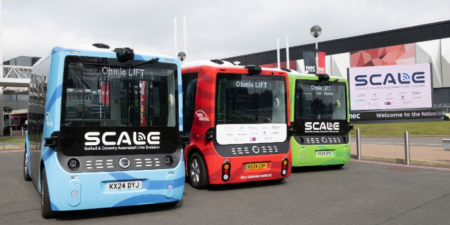A consortium of leading commercial partners and technical experts will conduct a trial of autonomous vehicles in the Australian state of Victoria to explore the use of driverless shuttles in the context of a university’s student mobility requirements.
Key industry partners, including RACV (Royal Automobile Club of Victoria), ARRB (Australian Road Research Group), Keolis Downer, and New Zealand company HMI Technologies have launched the first ‘use case’ trial for autonomous vehicles (AVs) in Australia.
HMI is supplying a French-built Navya 15-person shuttle for the duration of this trial. The electrically powered vehicle is fully autonomous (Level 4), has no steering wheel, and will be using GPS coordinates and sensors for detecting people or obstacles on its path. The Melbourne campus of La Trobe University, a consortium member, will be used to test the vehicle, first with a limited proof of concept test away from other traffic, and then in a real-world operating environment on the campus.
This is the first time such a project has been launched as a ‘proof of concept’ to address first- and last-mile connectivity requirements in Australia. The project, which has been partly funded through a A$375,000 (US$282,550) Victorian Government Smarter Journeys Program grant, will start in August 2017 and last for one year. The project aims to explore, through a model deployment in real operating conditions, the use of autonomous vehicles to create a reusable commercial framework to support development of the requisite regulations and/or legislation.
“The University is already on its way toward creating smart campuses that make it easier for students to use technology and enhance their education experience,” said La Trobe’s deputy vice-chancellor, Professor Keith Nugent. “Our Centre for Technology Infusion will be coordinating the shuttle trials, and have long been involved in developing technology that links businesses, enhances mobility, and shapes smart cities of the future.”
CEO of HMI’s Australian division, Dean Zabrieszach, commented, “Autonomous vehicles are coming, whether we are ready or not, so we are taking this initiative to ensure we understand the implications for the community and governments. Many people believe we are years away from seeing these vehicles on our roads, but we disagree. Increasing levels of automated technology are being delivered now, so it’s important we understand what is required for autonomous vehicles to operate safely here.”
RACV general manager Brian Negus noted, “It is important that we assess the benefits and risks of this new technology.”




